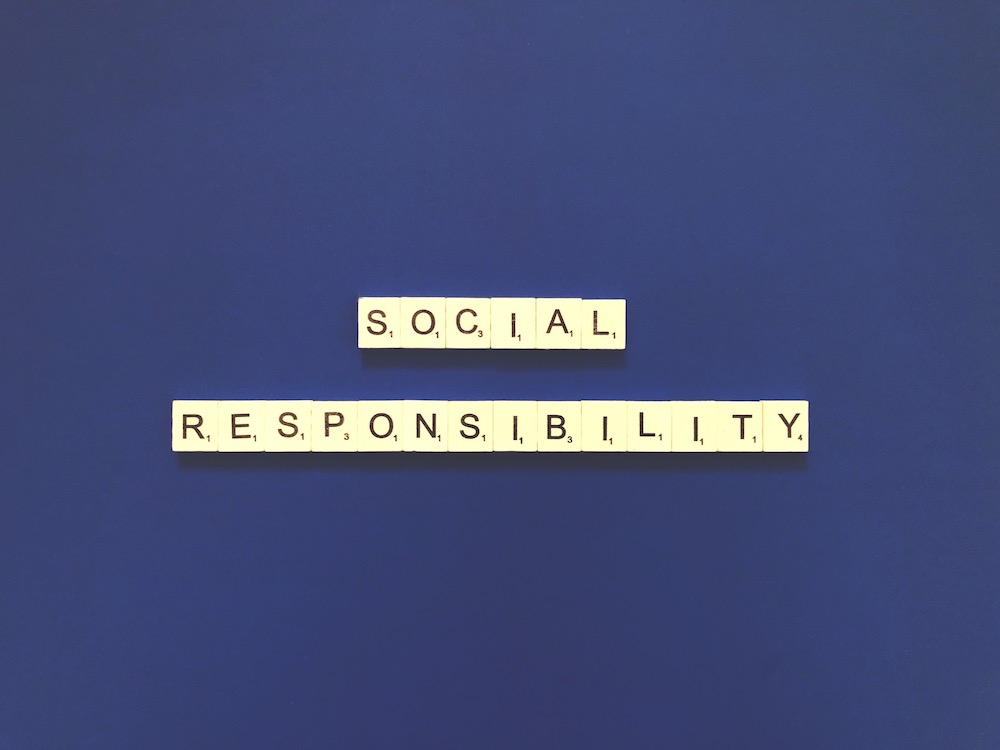Corporate Social Responsibility Policies can help show your company’s commitment to this issue. Corporate social responsibility is an approach to business self-regulation which aims to improve social and economic accountability in the workplace.
Business success is defined in terms other than profitability, growth rate or recognition. The company’s activities have an impact on the communities of the nation, economic, and environmental systems. And that means that they should care about a greater goal than just more profit.
Why is corporate social responsibility essential?
For small business owners, it’s increasingly becoming a bottom-line issue. Consumers are more meticulous than ever before about where they spend their money and often seek out brands that align with their values. What’s more, many investors now consider CSR when making decisions about where to put their money.
In this blog post, we’ll share some of the most significant impacts CSR can have and some actionable tips and strategies for businesses. We hope this information will help you get started on making a difference!

What are the benefits of CSR for companies?
CSR is a valuable asset for businesses. Firstly it improves the brand identity. Customers are usually positive when businesses show evidence of socially responsible practices. Secondly, employees’ confidence increases. Companies with equitably responsible behaviour tend to have higher moral values. Secondly, a job seeks out new talent.
Modern people tend to choose purpose-oriented and sustainable businesses over financial benefits. Lastly, active CSR-based businesses are attracting investment and partner partners.
In layman’s terms what is the purpose of CSR?
Businesses of all sizes can choose to initiate CSR programs or select initiatives to reap the benefits of the CSR model. A healthy investment in ethical behaviour will help improve brand recognition and brand reputation as well as increase the profitability of your business.
Some Background: Carroll’s Pyramid of Corporate Social Responsibility
In 1954 American economist Howard Bowen created social responsibility in his book “Social responsibility”. CSR is defined by the company as having a responsibility to follow a specific policy to accomplish its goals in relation to the values of society. In 1991 Archie Carroll categorically categorized expected corporate social obligations under four levels, which is called ‘the pyramid of corporate social responsibility’. The common framework includes four distinct responsibilities, including economics, law, ethics and philanthropy.

IMPACTS OF CORPORATE SOCIAL RESPONSIBILITY ON BRANDS OR BUSINESSES
As a founder or shopper, you might be wondering why CSR is important and how it can benefit your business. Here are the top impacts of corporate social responsibility.
Improved reputation and public image.
Improving your corporate social responsibility image is a great way to enhance the public perception of you as an organisation. Coca-cola and Disney are great examples of corporate social responsibilities. Coca-Cola is focused on sustainability, with a specific emphasis on climate, packaging, agriculture, and water stewardship. Their ultimate goal is to have no waste, with the aim of recycling every bottle and replacing all the water used in their drinks. They hope to reduce their carbon footprint by 25% by 2030.
Incorporating CSR can help with customer retention and brand loyalty. So, it’s worth investing time in these initiatives. Coca-Cola has released its Sustainability Report, which highlights the company’s CSR activities and objectives. Coca-Cola aims to donate at least 1% of its annual revenue to charitable causes every year. The distribution pattern of this fund in 2013 is depicted in the graph below.
Likewise, Disney is dedicated to reducing its carbon footprint. In their 2020 CSR report, they outlined goals for zero net greenhouse gas emissions, zero waste, and conserving water. They also have strict international labour policies in place to protect the safety and rights of their employees.
As a result of doing CSR, businesses can see several benefits. Firstly, it builds equity of the brand by creating a positive image in the minds of consumers. Additionally, CSR has been observed as an added strategy to enhance profitability and boost development.
Increased brand awareness and recognition
Ethics-driven businesses tend to turn into a huge plus because they’re trusted by consumers who carry high expectations for quality from brands and businesses. So, your commitment to ethical practices will spread like wildfire. Eventually, more people are likely to hear about your brand, which creates increased brand awareness.
By 2028, the market for Corporate Social Responsibility Software is expected to be worth over USD 1,400 million. Several factors are helping to raise CSR awareness in the workplace.
A great advantage over competitors
In a world of Cut-throat competition, it can be difficult for companies to keep up with other companies. But by taking a proactive stance on social and environmental factors like sustainability or corporate citizenship, you’ll not only stand out from your competitors but also set yourself apart as someone who cares about doing business ethically.
Excellent benefits to employees
Promoting corporate social responsibility in your workplace can create a more positive and productive environment. Giving your employees the opportunity for personal growth and professional advancement is an incredible way to keep them happy.
Cost-efficient
Corporate social obligations are critical, and they will have an influence on you as a business owner by lowering your production costs. this will result in easy changes toward sustainability which will lessen the amount that needs to go into manufacturing items.
4 types of corporate responsibility your business can practice right now
Businesses often focus on three broad sectors: socially responsible activities and the responsibilities of customers. Though startup companies do not have large financial reserves like enterprises do, their efforts may have significant impact, mainly within the local population.
Even 5% can make a big impact. ” Schmidt added. Those who think they can give something back should start locally and go on to the next step. Identify and implement CSR programs, involve the staff involved in decision making.
Here are some more actionable tips and strategies for making your business more sustainable and ethical. Whether you’re looking to reduce your carbon footprint, support local farmers, or create a fair and inclusive workplace. There’s something here for you. So, let’s dive in!

Link to brand values
When it comes to corporate social responsibility, the best initiatives are those that are closely aligned with a company’s brand values. Linking to your company or brand value helps businesses connect with the target customers. This will boost the performance and legitimacy of your business while positively impacting society.
According to new YouGov Omnibus data, 87 per cent of Australians believe corporations have a responsibility to do good in the community, indicating that corporate social responsibility (CSR) is still a major factor for Australian firms.
Borrow great strategy
It can be tough to develop a Corporate Social Responsibility strategy that really works for your business. After all, there’s a lot of pressure to do good while also being profitable. But don’t worry, you don’t have to reinvent the wheel.
Spend some time looking at how other businesses have approached sustainability, charitable giving, and employee engagement. Then adapt what you see to fit your own brand and values. Remember, even though you might be borrowing ideas, your strategy will still be unique because your company is unique. And that’s what makes it special.
Create external collaborations
When it comes to empowering communities, it’s essential to seek out partnerships with pre-existing organisations doing great work. Here are a few examples of businesses that have partnered with community organisations to drive social good. Adidas, IKEA, Apple and BMW, are one of the top corporate social responsibility companies that are committed to empowering their local communities.
When it comes to creating successful external collaborations, make sure you’re doing more than just “listening.” It’s essential to develop authentic relationships with partners based on trust and mutual respect. Only then will you be able to work together towards common goals that benefit everyone involved.
Join iSponsor
The iSponsor App is a free and easy way for your business to raise money for your favourite group or cause. All types of Businesses can use iSponsor to reach a growing community of socially responsible consumers. iSponsor helps businesses to connect with a larger audience and see a guaranteed return on investment.
This fundraising platform will revolutionise how people coordinate and engage in campaigns to support their favourite causes. It’s like following your favourite sports team, but with a cause. Overall, iSponsor is a one-stop shop for social responsibility and giving back.
Corporate Social Responsibility Trends in Action
The decision on how to deal with customers or staff is based on the business decision and on the social impact it has on their business. As business leaders look for ways to improve their brand identity, diversity is an important factor in their decisions about the economy.
Corporate social responsibility became more vital after consumers realised the importance that businesses could make measurable impacts in reducing pollution in our environment and in solving social problems in the future.
2 Brands Doing Corporate Social Responsibility Successfully
CSR helps corporations achieve positive changes through their business activities and policies. In that sense businesses choose to do what they believe in, both for business growth and customer satisfaction. It is also about the customers trusting. Consumers believe that utilising socially responsible products makes them feel more involved the more Socially Responsible a company becomes. Corporate social responsibility is important to gain customer trust through a concern for environmental issues like the EarthDay, raises awareness, and promotes social change.
Many businesses today recognise the CSR benefits that extend beyond the bottom line. In general, the more socially aware a company is, the greater the support for it. Several examples of CSR activities are listed here.
Walt Disney Company
Walt Disney’s business is often listed in many high-profile CSR efforts. Walt Disney believes that anything containing Disney’s names must go through the responsibility of the Disney people. Disney is a major player in Responsible Management focusing on reducing environmental impact and continually seeking alternative solutions to its environmental concerns.
Until the end of 2008, Disney was striving toward achieving its environmental objectives. Besides CSR initiatives, Disney offers philanthropy grants. More than $75M has been directed towards the conservation of wildlife and protecting planets.
Woolworths
Proudly Pokie Free says its pokies business costs Australia billions each year. The pokie machine has been specially developed for addictive tendencies and is now popular amongst over 400,000 Australians.
Woolworth invested heavily in gaming machines but was dangerous to their reputation as a business. In response to growing protests, the major supermarket chains decided that they would not accept the offer. By listening to public demand Woolworths chose to positively influence its business.

What to Avoid in your Corporate Social Responsibility Initiatives
Many businesses have moved to integrate social impact to achieve the greater good. But that isn’t necessarily a good thing. Many companies are looking for ways to increase their reputations and perceptions, rather than to produce and measure positive effects. For others, their comments are sometimes misleading. Here are a few examples of misleading and disingenuous CSR.
Disadvantages of Corporate Social Responsibility
CSR is aimed at encouraging businesses towards an environment that is sustainable with respect to the environment and communities, but it also has disadvantages. CSR activities can be expensive. Depending upon the complexity of the situation, a company must employ complex strategies and structure for the planning, execution and measurement.
Unprepared or poorly executed CSR strategies can quickly be disastrous and can cause significant financial and legal losses. The impact of a business’ reputation can have devastating consequences that the community can easily examine.
CSR certifications
Often the most reliable means of demonstrating your company’s social responsibility to the public is to undergo social impacts assessments by third parties for a company. These certifications will allow companies to gain public recognition for their sustainability and CSR efforts.
Thus, when it comes to CSR, there are a lot of misconceptions. Many people think that businesses only do CSR to make themselves look good or to avoid being fined. But the truth is, CSR is actually excellent for business. It can help you attract new customers, improve employee morale, and even save money.
So, what are you waiting for? Start giving back today and see how it impacts your business positively.




